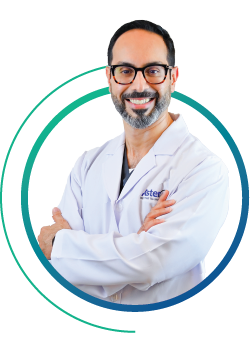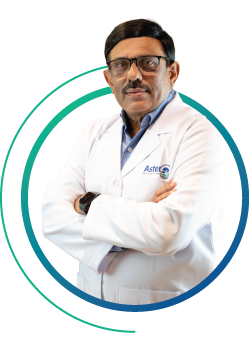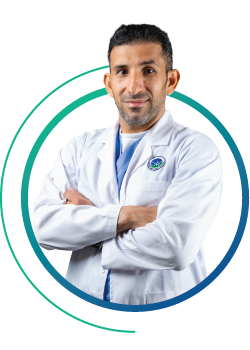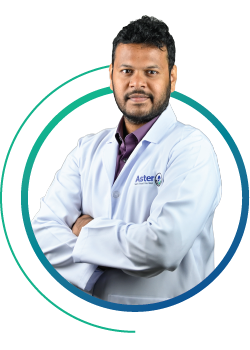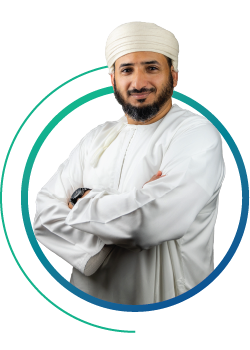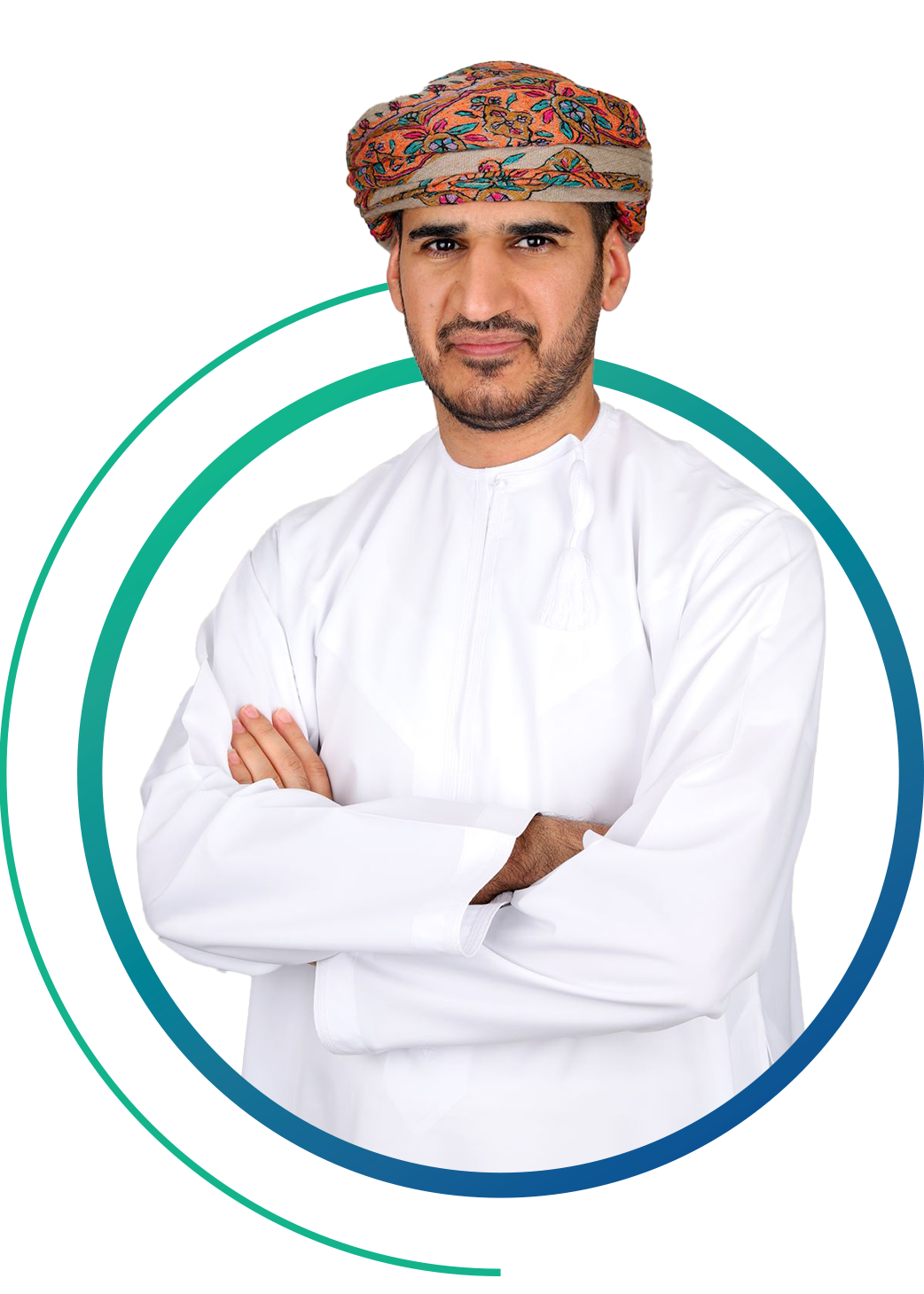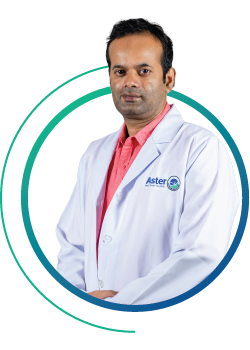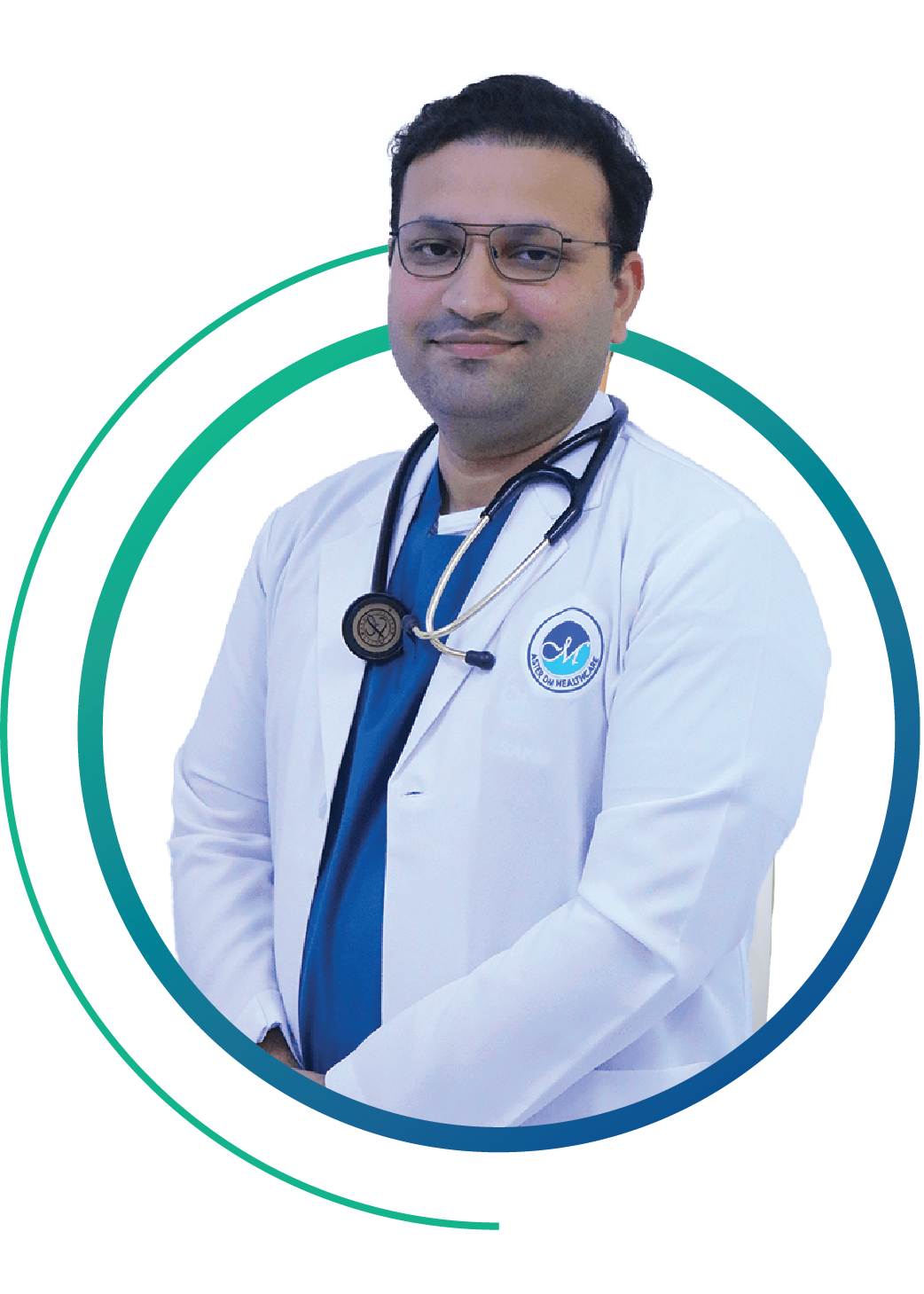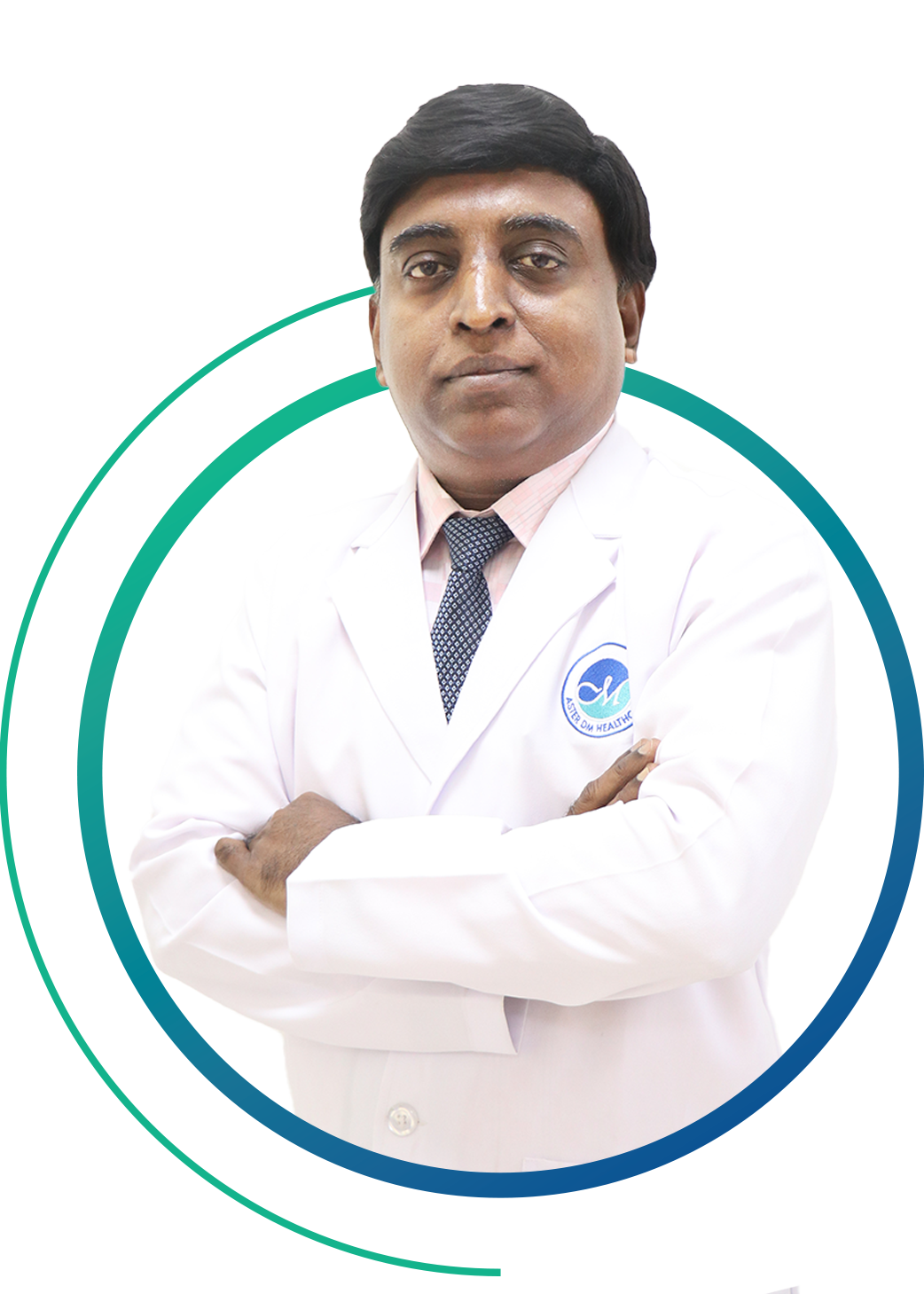Overview
Our Cardiology Department is committed to providing comprehensive care for heart-related conditions. Led by a team of experienced cardiologists and supported by skilled healthcare professionals, we offer a wide range of services from diagnostic tests to advanced treatments and preventive care. Whether you’re managing a heart condition or seeking preventive advice, our goal is to ensure your heart health is our top priority. We combine cutting-edge technology with compassionate care to deliver personalized treatment plans tailored to meet your unique needs. From routine check-ups to complex interventions, trust our expertise to guide you towards a healthier heart and a better quality of life.
TREATMENTS & PROCEDURE
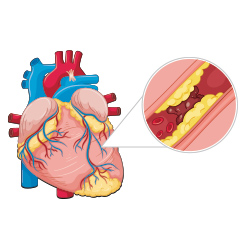
Utilizing minimally invasive techniques to diagnose and treat heart conditions with precision and minimal recovery time.
Cardiac catheterization involves inserting a catheter into the heart chambers or blood vessels to diagnose and treat various conditions. Related treatments include angioplasty, stenting, and coronary artery bypass grafting (CABG).
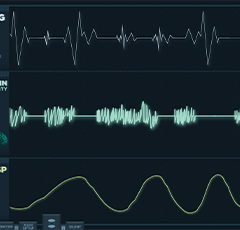
Non-invasive test to assess heart rhythm and detect abnormalities that may indicate heart disease.
An ECG records the electrical activity of the heart. It helps diagnose arrhythmias, heart attacks, and other heart conditions. Related tests include stress testing and Holter monitoring for continuous ECG recording.
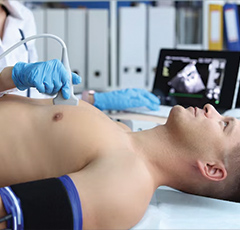
Using ultrasound to create images of the heart's structure and function, aiding in diagnosis and treatment planning.
Echocardiography uses sound waves to produce images of the heart’s chambers, valves, and blood flow patterns. It helps diagnose conditions like heart valve disease and heart failure. Related tests include stress echocardiography and transesophageal echocardiography (TEE).
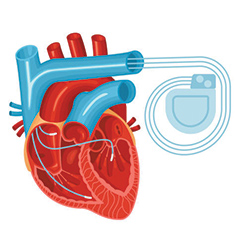
Surgical procedure to implant a device that regulates heart rhythm and improves symptoms of arrhythmias.
A pacemaker is a small device implanted under the skin to control abnormal heart rhythms by sending electrical impulses to the heart. Related treatments include implantable cardioverter-defibrillator (ICD) placement and cardiac resynchronization therapy (CRT).
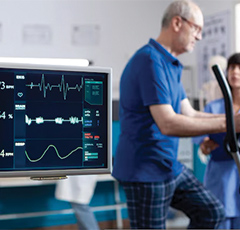
Tailored programs combining exercise, education, and counseling to improve heart function and overall well-being.
Cardiac rehabilitation helps patients recover from heart attacks, heart surgery, or other heart-related procedures. It includes monitored exercise, lifestyle modification, and emotional support. Related programs include dietary counseling and stress management.
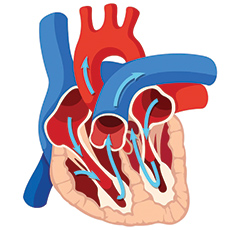
Specialized care for conditions affecting heart valves, including diagnosis and treatment options such as valve repair or replacement.
Valvular heart disease involves conditions affecting the heart valves, which can lead to symptoms like shortness of breath or chest pain. Treatment options include medications, minimally invasive procedures like transcatheter valve repair/replacement, or traditional surgical techniques for valve repair or replacement.
Utilizing minimally invasive techniques to diagnose and treat heart conditions with precision and minimal recovery time.

Cardiac catheterization involves inserting a catheter into the heart chambers or blood vessels to diagnose and treat various conditions. Related treatments include angioplasty, stenting, and coronary artery bypass grafting (CABG).
Non-invasive test to assess heart rhythm and detect abnormalities that may indicate heart disease.

An ECG records the electrical activity of the heart. It helps diagnose arrhythmias, heart attacks, and other heart conditions. Related tests include stress testing and Holter monitoring for continuous ECG recording.
Using ultrasound to create images of the heart's structure and function, aiding in diagnosis and treatment planning.

Echocardiography uses sound waves to produce images of the heart’s chambers, valves, and blood flow patterns. It helps diagnose conditions like heart valve disease and heart failure. Related tests include stress echocardiography and transesophageal echocardiography (TEE).
Surgical procedure to implant a device that regulates heart rhythm and improves symptoms of arrhythmias.

A pacemaker is a small device implanted under the skin to control abnormal heart rhythms by sending electrical impulses to the heart. Related treatments include implantable cardioverter-defibrillator (ICD) placement and cardiac resynchronization therapy (CRT).
Tailored programs combining exercise, education, and counseling to improve heart function and overall well-being.

Cardiac rehabilitation helps patients recover from heart attacks, heart surgery, or other heart-related procedures. It includes monitored exercise, lifestyle modification, and emotional support. Related programs include dietary counseling and stress management.
Specialized care for conditions affecting heart valves, including diagnosis and treatment options such as valve repair or replacement.

Valvular heart disease involves conditions affecting the heart valves, which can lead to symptoms like shortness of breath or chest pain. Treatment options include medications, minimally invasive procedures like transcatheter valve repair/replacement, or traditional surgical techniques for valve repair or replacement.
Diseases treated
FAQs
A cardiologist is a medical doctor with specialised training and skill in disgnosing, treating, and preventing diseases of the heart and blood vessels.
Adopting a heart-healthy lifestyle is crucial for maintaining optimal heart health and reducing the risk of heart disease. This includes eating a balanced diet rich in fruits, vegetables, whole grains, and lean proteins; engaging in regular physical activity; maintaining a healthy weight; avoiding tobacco products; managing stress; and monitoring and controlling risk factors such as high blood pressure, high cholesterol, and diabetes.
An echocardiogram uses ultrasound to create images of the heart’s structure and function, helping diagnose heart conditions like valve problems or heart failure.
Coronary angiography is a procedure to visualize coronary arteries using contrast dye and X-rays, helping diagnose blockages or narrowing that can lead to heart attacks.
You should consider seeing a cardiologist if you experience symptoms such as chest pain, shortness of breath, palpitations, dizziness, or fainting, especially if they are persistent or severe. Additionally, if you have risk factors for heart disease such as high blood pressure, diabetes, smoking, or a family history of heart problems, regular check-ups with a cardiologist may be recommended to monitor your heart health and prevent potential complications.
Symptoms of a heart attack can vary but commonly include chest pain or discomfort, shortness of breath, nausea, lightheadedness, and pain or discomfort in the arms, back, neck, jaw, or stomach.
A stress test evaluates heart function during physical exertion to diagnose coronary artery disease, assess exercise tolerance, and plan treatment.
Prevention strategies include maintaining a healthy diet, regular exercise, managing stress, not smoking, and controlling conditions like high blood pressure and cholesterol.

















